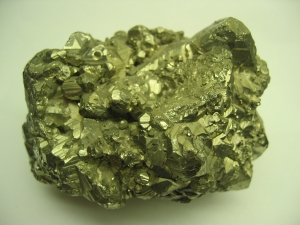
Paul Ayris's points in
"
Why panning for gold may be detrimental to open access research"
are all spot on:
The UK Government -- under the palpable influence of ponderous (and successful) lobbying by the publishing industry lobby -- recommends that the UK should phase out extra-cost-free Green OA self-archiving in institutional repositories and instead pay publishers extra for Gold OA out of scarce UK research funds, as recommended by the Finch Report. Fortunately,
RCUK (and the
EC) think otherwise and continue to mandate Green OA, in keeping with the
UK Select Committee's historic recommendation in 2004.
There is also the question of the rest of the world, as only 6% of research journal content comes from the UK.
Paul writes:
"If the whole world turned open access tomorrow, the evidence suggests that the greatest savings would come from gold, rather than green, open access."
This is incorrect, because it omits the question of
how the rest of the world is imagined to turn OA tomorrow:
1. If tomorrow the entire world, like the UK, immediately agreed pre-emptively to pay publishers' asking price for Gold OA, the world would have OA, but everyone would be paying more for publishing than they are paying now for subscriptions, because they would be paying for subscriptions plus pre-emptive Gold OA. Publishers would, of course, obligingly agree to cap total expenditure at what is today being paid for subscriptions, thereby ensuring their current revenue streams.
2. If tomorrow the entire world instead immediately mandated extra-cost-free Green OA, the world would have OA, and subscriptions would continue paying for subscriptions, at no extra cost or saving.
But the reality is that the entire world cannot and will not agree to pay publishers extra pre-emptively for Gold OA tomorrow, as the UK seems to have agreed to do. There will be an anarchic transition period, in which mandating extra-cost-free Green OA will be the much less expensive option.
And if Green OA nears or reaches 100% globally, institutions will finally able to cancel their subscriptions, forcing publishers to phase out the print and online edition, archiving and access-provision and their costs, downsizing to the management of the peer-review service and converting to Gold OA, whose far lower costs institutions will pay, per paper published, out of a fraction of their annual windfall savings from having cancelled subscriptions.
This is the contingency the publishing lobby managed to gull the gullible Finch Committee and UK government into overlooking completely in favour of a gratuitous rush to pan out pre-emptively for pre-Green Gold. (And this is the reason that pre-emptive Gold is such a foolish, unrealistic and costly option, whereas post-Green Gold will not only provide 100% OA but it will also lower overall publishing cost and expenditure substantially.
Swan, Alma & Houghton, John (2012) Going for Gold? The costs and benefits of Gold Open Access for UK research institutions: further economic modelling. Report to the UK Open Access Implementation Group, June 2012.
Harnad, S. (2007) The Green Road to Open Access: A Leveraged Transition. In: Anna Gacs (ed). The Culture of Periodicals from the Perspective of the Electronic Age. L'Harmattan. 99-106.
Harnad, S. (2011) Gold Open Access Publishing Must Not Be Allowed to Retard the Progress of Green Open Access Self-Archiving. Logos: The Journal of the World Book Community. 21(3-4): 86-93
From Swan & Houghton's 2012 executive summary (as quoted by Peter Suber in "Transition to green OA significantly less expensive than transition to gold OA" )"Based on this analysis, the main findings are: [1] so long as research funders commit to paying publication costs for the research they fund, and [2] publication charges fall to the reprint author’s home institution, [3] all universities would see savings from (worldwide) Gold OA when article-processing charges are at the current averages, [4] research-intensive universities would see the greatest savings, and [5] in a transition period, providing Open Access through the Green route offers the greatest economic benefits to individual universities, unless additional funds are made available to cover Gold OA costs....[F]or all the sample universities during a transition period when subscriptions are maintained, the cost of adopting Green OA is much lower than the cost of Gold OA - with Green OA self-archiving costing institutions around one-fifth the amount that Gold OA might cost, and as little as one-tenth as much for the most research intensive university sampled. In a transition period, providing OA through the Green route would have substantial economic benefits for universities, unless additional funds were released for Gold OA, beyond those already available through the Research Councils and the Wellcome Trust...."
Stevan Harnad
 Paul Ayris's points in
Paul Ayris's points in

